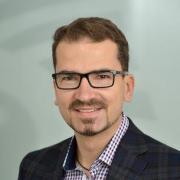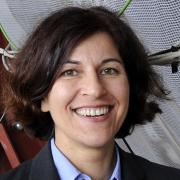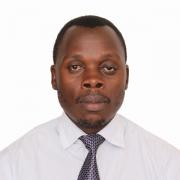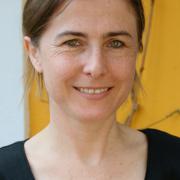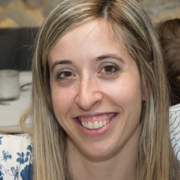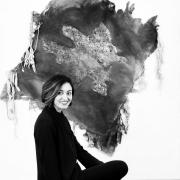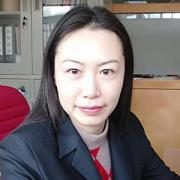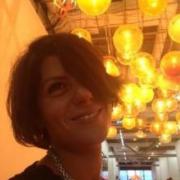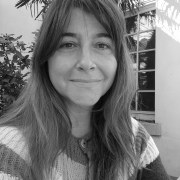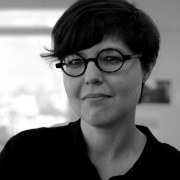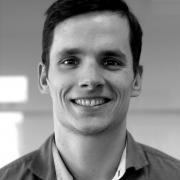A selection of posters showcasing non-profit projects will be displayed in the Business Bistro area throughout the entire conference. Join this special time slot to meet poster authors and engage in conversation.
Facilitator
Session speakers
segment leader, exhibition concept designer
AV MEDIA
Prague
Czech Republic
In the last year we implemented the first privately financed science centre in the Czech Republic, named Alternator. The Alternator Eco-technical Centre was established as an inspired modern interactive science centre project that attempt to educate visitors in the field of physics, technology and ecology in an entertaining form. The science centre project would be presented in cooperation with the Alternator Eco-technical Centre, both from the perspective of the contracting authority and the implementer, from the initial study to the actual realisation itself. You can find more information on www.avmedia.cz.
Exhibition Consultant/PhD Research
HKD Studio / University of Nottingham
Collaboration between UK and China, for creating science exhibitions together
These project showcases describes the onsite experiences four science centres/ exhibitions in China, designed by UK museum & exhibition design firm. The project showcases will focus on the collaboration for creating a challenging environment and present a classification of possible tool functionalities. Project name: Putian Science Centre Fujian Science Centre Hong Kong Space Museum
Head of Interactive Science & Technology Exhibition
-
P. Faliro
Greece
Speakers: Vassilis Papakonstantinou (Eugenides Foundation), Emily Michailidi (University of Crete), Dimitris Stavrou, Christina Troumpetari (Eugenides Foundation). In the framework of the European project IRRESISTIBLE www.irresistible-project.eu, students are engaged in the construction of interactive exhibits as a means of communicating RRI issues. Through the exhibit design process, students formulate questions, observe, search and use data to produce scientific explanations and communicate them to the users of the exhibits. The result of the project is a series of scientific exhibits which addressed RRI aspects. Therefore, the exhibition development process as a pedagogical tool is highlighted and forms the showcase of the project.
Doctoral student "NAVI for Research Museums - New Approaches to Valorization and Knowledge Dissemination"
German Maritime Museum
Bremerhaven
Germany
NAVI for Research Museums – New Approaches to Valorization and Knowledge Dissemination
Research museums of the Leibniz Association execute scientific research and gain knowledge and results which are also stored digitally. The project thus focuses on dissemination and valorization of digital content and considers possible target groups, a twofold perspective of freely accessible content and charges, and criteria to identify contents’ potentials. It is necessary to collect and record tangible and intangible assets within the museum and to identify potentials in order to develop recommendations, business models and strategies how to use digital content in order to exploit its full potential.
Director
Bremerhaven
Germany
NAVI for Research Museums – New Approaches to Valorization and Knowledge Dissemination
Research museums of the Leibniz Association execute scientific research and gain knowledge and results which are also stored digitally. The project thus focuses on dissemination and valorization of digital content and considers possible target groups, a twofold perspective of freely accessible content and charges, and criteria to identify contents’ potentials. It is necessary to collect and record tangible and intangible assets within the museum and to identify potentials in order to develop recommendations, business models and strategies how to use digital content in order to exploit its full potential.
Research Scientist
Kenya Agricultural and Livestock Research Organization/Informal Science Centre Kenya
Nairobi
Kenya
KALRO science centre corner is rooting so fast and already making impact to the community through youth engagement with Science. Visiting schools & students on attachments have appreciated the concept. A fully fledged first informal science centre is proposed for Kenya. A church approach was used to bring youth together. 120 youth participated. Purchase of exhibition/play materials was funded by the science centre. Motivation exhibits, sign language and science plays were deployed. The group appreciated Science in forming a key part in their lives and as such acknowledged the need to better understand of science through informal science centres.
Project Manager
ZOOM Kindermuseum
Vienna
Austria
Speakers: Christiane Thenius, Elisabeth Menasse (Director), Christian Ganzer (Head of Exhibition)
Plastic – A hands-on exhibition for children about plastics and sustainability.Toys, computers, cellphones, clothes, packaging, cars, bicycles and helmets – many of the things we use in daily life are made of plastics. Littering and the inconsiderate usage of plastics has led to huge environmental problems. The current exhibition at ZOOM informs children what plastics actually are and how they can use them responsibly and sustainably. They can experience the exhibition with all their senses and from a variety of perspectives. A deeper understanding of plastics should motivate them to a more conscious and responsible handling.
Project Manager
Athens
Greece
Ark of Inquiry project aims to raise awareness of pupils to Responsible Research and Innovation by promoting an interest in science through inquiry learning. In the project a platform is developed through which inquiry-based activities will be made available across Europe. This platform will bring together activities, learners and supporters (teachers, university students, researchers, staff of museums). To support teachers, the project will provide face-to-face trainings. Furthermore, we will develop supportive web-based materials for those working with the Ark of Inquiry project. The project is coordinated by the Tartu University and it involves 13 partners from 12 countries. Ellinogermaniki Agogi is responsible for building community of users of the projects both teachers and science centres and museums staff
freelance consultant
MI Project Curatorial Initiative
Baku
Azerbaijan
MI Project, a UNESCO-supported initiative to develop a pilot of museum learning programme on national textiles and carpets for children and young adults in two state museums – The Carpet and The Art Museums – is a private initiative of Asli Samadova. All the content is licensed under CC BY-NC-SA 4.0 international license and includes paper-based in-museum and take-home activities developed in Azeri, Russian and English languages. Although the project has not yet been launched officially, it has already attracted interest both in the country and abroad. Among the foreign museums endorsing the project are V&A and the Metropolitan Museum of Art.
Deputy Director of Comprehensive Business Dept., SSTM
Shanghai Science & Technology Museum
Social Cooperation and Sharing in Science Museums— Take SSTM’s Exhibiting Innovation as an Example
The talk centers on “exhibiting education”, which is an important part to show museum’s core competitiveness. We have both successful cases and lessons to learn on cooperation with society, such as cooperation on exhibits development with enterprises, museum education kits with school science teachers, science communication forum with scientists or academicians, and other practices with museum colleagues and media. Through cooperation with social resources, we have made innovations in many aspects and make up for our disadvantages and overcome some resources-lacking bottlenecks.
Senior Project Manager
Ecsite
Brussels
Belgium
The Hypatia project deals with the way schools, science museums, research institutions and industry engage teenage girls in STEM across Europe. The project will engage 13-18 year old girls both in and out the school environment. To do this, Hypatia will bring together science centres and museums, schools, research institutions and industry with gender experts and teenagers themselves. We will develop toolkits for each of them, so everyone is empowered to organise and create gender inclusive activities, programmes and events.
Grant Office
Sapienza University of Rome
Nowadays, talking about research and innovation implies a deep reflection on themes such as responsibility and sustainability according to the European paradigm of RRI.
Sapienza University is working on this through the USR-NET Erasmus project, aiming at creating a network of social responsible universities. The university is also joining policies’ tables focused on research and innovation impacts.
To this regard we would like presenting our experience on:
- social, environmental and economic sustainability in innovative products and processes according to
the triple bottom line;
- Corporate Social Responsibility for Universities;
- public engagement, both in terms of stakeholders’ involvement and transparency.
Consultant in educomms
A Mountain with Wings
Germany
How can science centres and museums, as well as other science engagement organisations get into the RRIght mindset? Openness and transparency, diversity and inclusion... these are just a couple of requirements. Join us and find out more! We will be discussing a guide with cases showcasing how to put RRI into practice. The guide is developed by the RRI Tools project funded by the EU. It aims at raising awareness, training, disseminating and implementing Responsible Research and Innovation (RRI). RRI is a process where all societal actors (researchers, citizens, policy makers, business) work together during the whole research and innovation (R&I) cycle in order to align its outcomes to the values, needs, and expectations of European society.
Project Manager
Ecsite
Brussels
Belgium
Coordinated by Ecsite, Sparks is an engagement project on technology shifts in health and medicine. Its aim is to raise awareness and communicate the concept of Responsible Research and Innovation (RRI) to Europeans in 29 countries. Sparks will organise an interactive touring exhibition and 230 innovative participatory activities such as science cafés, pop-up science shops, incubation activities and scenario workshops. Sparks’ methodology emphasises interdisciplinary and participatory approaches to promote RRI in relation to health. This is a highly relevant research topic which is able to motivate citizens’ and other stakeholders’ engagement in science and research.
Project Manager
Ecsite
HEIRRI aims to integrate the concept of “Responsible Research and Innovation” (RRI) into university careers in science and technology, so that research and innovation meets societal needs, values and expectations. The project will map out the state-of-the-art RRI practices in HEI and design materials to be piloted at 10 universities and 2 science centers. ScienceSquared is a 3.5-year political and public support campaign for the European Research Council, aiming to highlight the ‘blue-sky’ research, funded by ERC and its scientific achievements and success stories. The project creates and disseminates content related to six scientific themes via a series of public events in 10+ EU countries.
Communication and PR Manager
First Open Days at INL – Inviting our Neighbours: Located right in the centre of Braga (Northern Portugal) INL dedicated its first Open Days event to the local residents, and openedits doors on a weekend for its neighbours, involving the local authorities in the process. Three Thousand neighbours accepted the invitation to find out more about what we do, who we are and how we work.
INLers offered guided tours, exhibitions and activities for the young, shedding light on how we create and bring value to society.
INL - International Iberian Nanotechnology Laboratory was founded by Portugal and Spain under an international legal framework to perform interdisciplinary research and to deploy and articulate nanotechnology for the benefit of society.


